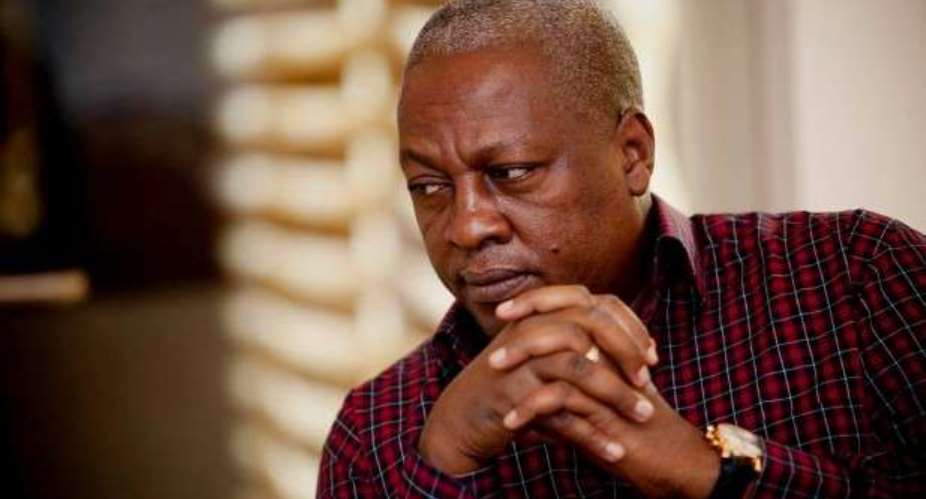The Mahama government is accused of effectively “stealing” $300 million from state coffers as they face their electoral fate in two weeks’ time at the December 7 presidential and parliamentary elections.
Evidence seen by the Daily Statesman shows that already $120 million has been inappropriately taken out of state coffers for this questionable project, which insiders see as a mere cover for cash to fund the ruling party’s electoral efforts.
It is officially a “contract for the improvement of Ghana’s Security Infrastructure Request’. That contract is valued at a huge US$297,475,628.00, which would be yet another big debt for a future government to struggle with after 2016.
The contract is ostensibly for, as stated, “various security equipment, surveillance systems, software and technical training…”
The shipment date for the said goods is stated as November 30, 2016, with China, Dubai, South Africa, USA, UK and Hungary stated as countries of origin.
A very concerned source at the Ministry of Interior disclosed, “There is no basis for this contract, and we know that it would definitely be a prime case for criminal investigations if there is a change of government this year. It is reckless, heartless and totally irresponsible.”
The company behind this deal is Santa Baron Ventures Ltd, which was set up in the UK just seven months ago, on April 19, 2016 in West Molesey, Surrey, UK. The men behind it are a Ghanaian, Kwabena Boateng-Aidoo, and two Britons, Martin Wightman and Daniel Wealthyland.
Sources at the Ministry of Finance suspect that the $120 million that has already been paid out for the project is actually to feed the electoral efforts of the incumbent president.
In a frantic effort to fill the fiscal gap left by the drawn down, the Controller and Accountant General Department on November 10, 2016 authorized the Bank of Ghana to establish deferred payment letters of credit.
The letter signed by Samuel Aryee, acting Deputy Controller & Accountant-General, and addressed to the Director of the Banking Department of BoG, reads: “you are hereby authorized to establish deferred Letters of Credit to the tune of US$297,475,628.00 in favour of Messrs Santa Baron Ventures Limited… On behalf of the Ministry of Interior in respect of contract agreement entered into with the above company for the improvement of Ghana’s security infrastructure.”
A deferred payment letter of credit is one that is paid a fixed number of days after shipment or presentation of prescribed documents. It is used where a buyer and a seller have a close working relationship because, in effect, the seller is financing the purchase by allowing the buyer a grace period for payment.
As to how a company set up just seven months ago, with characters of no known record in security matters, managed to win a contract valued at some GH¢1.2 billion equivalent and be considered as worthy of deferred letters of credit is puzzling to civil servants at the Ministry of Finance.
The main faces fronting this deal are Prosper Bani, the Minister of Interior, and Seth Terkper, the Minister of Finance. But, there are said to be three main higher characters actually pushing the levers behind these two ministerial persons.
Another letter dated November 3, 2016 and signed this time by Seth Terkper, authorizing the same deferred letters of credit, puts the maturity for the letters of credit at 2019, with six scheduled payments of some $50 million each from 2017.
“The amount should be charged to the 2017 budget of the Ministry of Interior,” the Finance Minister instructs.
A separate letter signed by James Agalga, Deputy Minister of Interior, dated September 23, 2016, gives some details: “The major condition to be fulfilled on the part of the Principal to enable the General Contractor to deliver as expected, is for the Ministry of Finance to issue an irrevocable deferred letters of credit to cover the entire contract sum of Two Hundred and Ninety Seven Million Four Hundred and Seventy-Five Thousand Six Hundred and Twenty Eight Dollars (USD 297,475,628.00) which is to be spread over three years in six equal instalments, payable between the year 2017 to 2019 as part of the Ministry of Interior’s Medium Term Expenditure Framework.”





 Whoever participated in the plunder of the state must be held accountable – Jane...
Whoever participated in the plunder of the state must be held accountable – Jane...
 A vote for John and Jane is a vote to pull Ghana from the precipice of destructi...
A vote for John and Jane is a vote to pull Ghana from the precipice of destructi...
 I’ll repay your abiding confidence with loyalty, understanding and a devotion to...
I’ll repay your abiding confidence with loyalty, understanding and a devotion to...
 ‘I’ve learnt deeply useful lessons for the future' — Serwaa Amihere breaks silen...
‘I’ve learnt deeply useful lessons for the future' — Serwaa Amihere breaks silen...
 I’m sorry for the embarrassment – Serwaa Amihere apologises for leaked sex video
I’m sorry for the embarrassment – Serwaa Amihere apologises for leaked sex video
 Dumsor: Matthew Opoku Prempeh not in charge of Energy sector – Minority
Dumsor: Matthew Opoku Prempeh not in charge of Energy sector – Minority
 Adu Boahen’s murder: Police arrest house help who was in possession of deceased’...
Adu Boahen’s murder: Police arrest house help who was in possession of deceased’...
 Akufo-Addo nominates Felicia Attipoe as Tema West MCE
Akufo-Addo nominates Felicia Attipoe as Tema West MCE
 Election 2024: I can't have someone I defeated twice as my successor – Akufo-Add...
Election 2024: I can't have someone I defeated twice as my successor – Akufo-Add...
